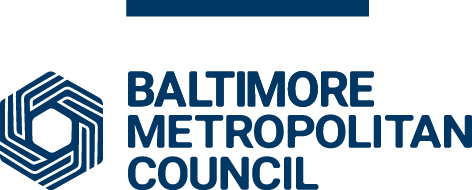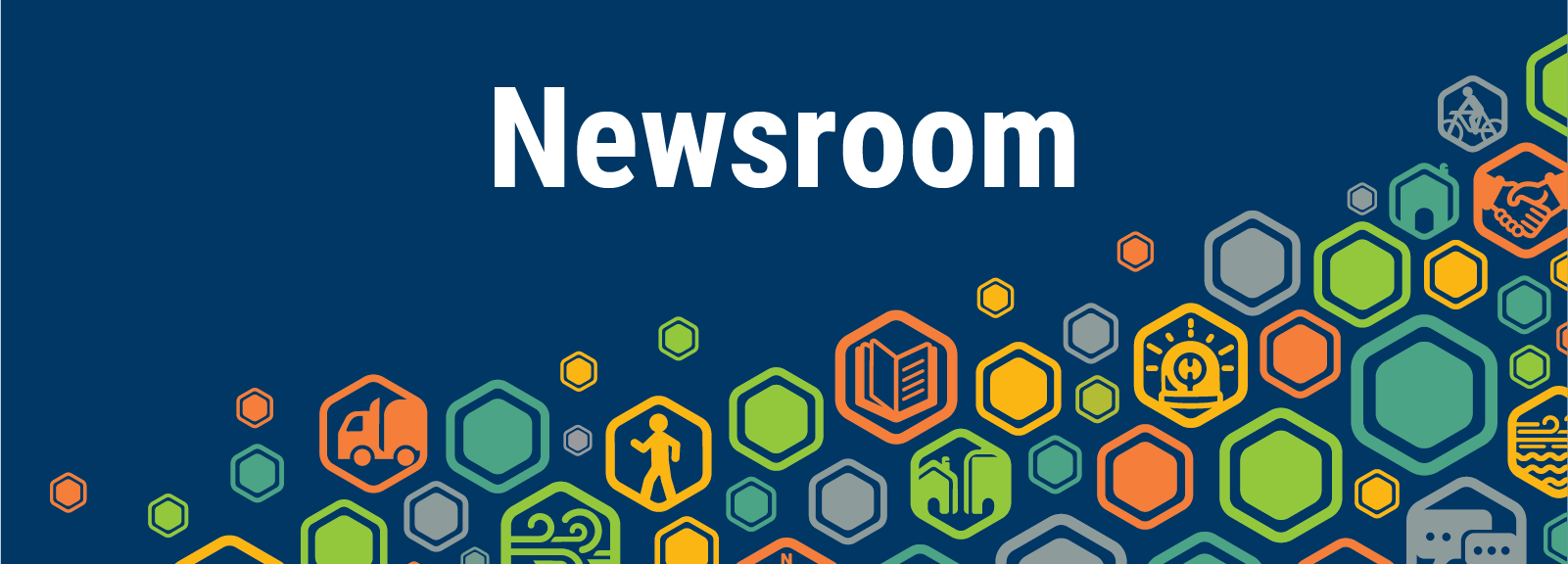
BMC staff works with stakeholders from member jurisdictions to support regional emergency preparedness programs coordinated through the Baltimore Urban Area Security Initiative (UASI) and by the Baltimore Urban Area Homeland Security Work Group (UAWG).
In response to COVID-19, our emergency Preparedness team sprang into action to support local jurisdictions during the crisis.
COVID-19 has caused significant disruption to the food supply chain in our region, leaving many individuals in danger of going hungry. In response to this challenge, many local governments and non-profits in the region coordinated boxed lunch distribution sites to serve those in need. Persons deemed “food insecure” could include children and families, older adults and other residents who need access to free meals during the coronavirus outbreak. Our staff provided critical food distribution supply chain support to our region’s emergency management agencies in support of this effort.
Our planners provided resources to streamline assessment of food distribution locations and analyzed data to support identification and selection of sites. BMC also worked with the Metropolitan Washington Council of Governments (MWCOG) to share food distribution efforts and strategies that were useful in the Baltimore UASI region. We also collaborated with each jurisdiction’s Office of Emergency Management (OEM) within the Baltimore UASI region to work with their designated Food and Water Disaster Supply Chain point of contact to collect plans, templates, checklists, and knowledge sharing resources. We then disseminated these tools to local jurisdictions to aide in their food site selection processes.
Once the food sites were operational, BMC staff researched and shared Federal documents to help guide safe food distribution operations, and troubleshoot some of the issues that arose as food distributions efforts were implemented, such as funding, procurement, site assessment and local/ state coordination.
Beyond food distribution support, BMC provided data collection and reporting, along with resources and best practices in this unprecedented time. BMC staff:
- Collected data to create a GIS representation of the area covered by the food distribution efforts. This bird’s eye view offers an easy to read visual representation of coverage, helping local officials to assure they are reaching all areas in need.
- Supported local jurisdictions’ Emergency Operations Center (EOC) and emergency management activities through EOC brief outs, drive through testing site visits, and pop up testing site execution.
- Developed a Virtual Emergency Operations Center (EOC) Guidance document that reviews suggestions and considerations for implementing a virtual EOC.
- Shared best practices, lessons learned, and regional procurement opportunities between the UASI jurisdictions.
- Researched temporary medical staffing companies and procurement opportunities to support hospital surges.
- Facilitated UASI Emergency Management Directors calls to review current guidance, actions, and strategies for regional missions such as recovery planning in coordination with the Maryland Emergency Management Agency (MEMA).
The BMC emergency preparedness team will continue to support the Baltimore region through the COVID-19 outbreak, doing its part to move the region toward recovery.
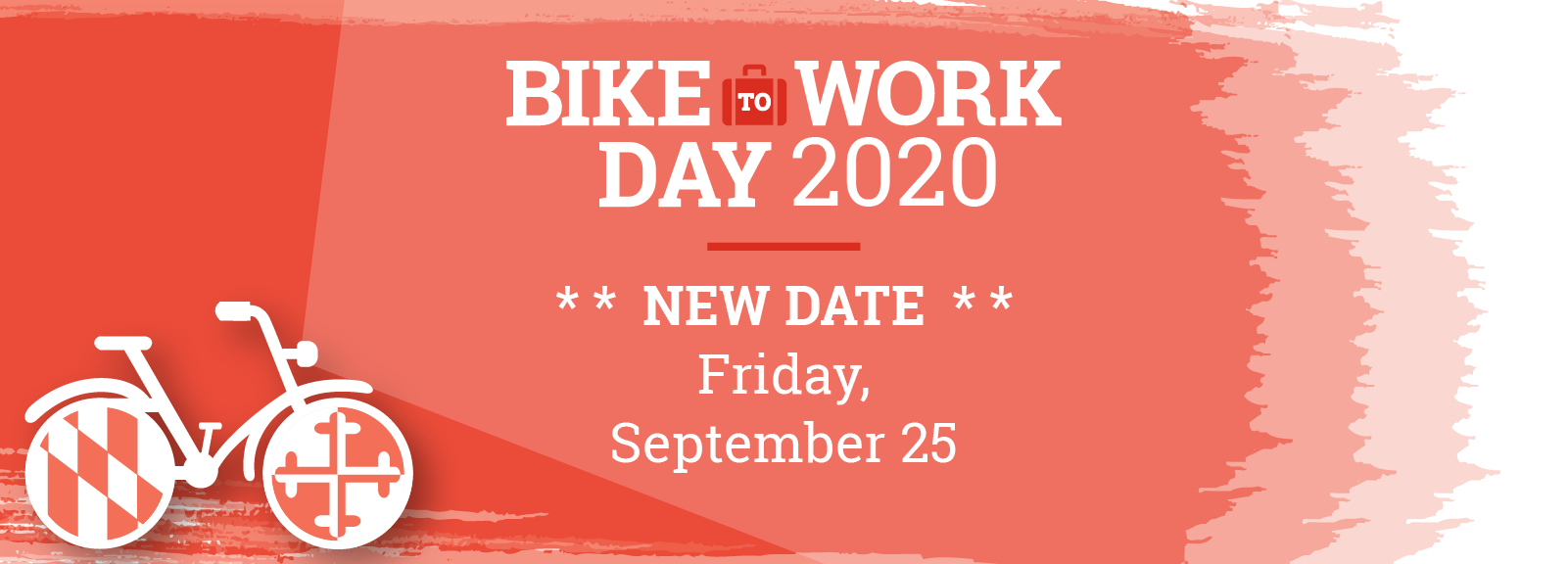
This fall, the Baltimore region will celebrate the 23rd Annual Bike to Work Day on Friday, September 25, 2020. As with all large gatherings, the event is contingent upon authorization and appropriate guidance from government and public health officials.
The event, which was previously scheduled for May 15th, was postponed in light of COVID-19 restrictions. The safety of participants and the public at large remains the number one priority of the Baltimore Metropolitan Council and its partners. Postponing allows organizers time to plan for what we hope will be a healthier and safer event this fall.
Bike to Work Day is a national campaign that celebrates bicycling as a healthy commuting option, while promoting public awareness of its safety and environmental benefits. Bike to Work Day helps raise awareness of the rules of the road for drivers, pedestrians and cyclists, and highlights the need to improve bicycle facilities to improve safety.
In the Baltimore region, Bike to Work Day draws more than 1800 attendees to 45 pit stop locations throughout six counties. Participating jurisdictions include Baltimore City and Anne Arundel, Baltimore, Carroll, Harford and Howard Counties. Pit stops feature group convoy rides, bicycle tune-ups, riding challenges, free food and drinks, free custom T-shirts, and other prizes.
For more information on Bike to Work Day 2020, and to stay up to date with the latest information on registration dates and pit stop locations, visit biketoworkmd.com.
We welcome your participation and look forward to seeing you all on the road this coming September!
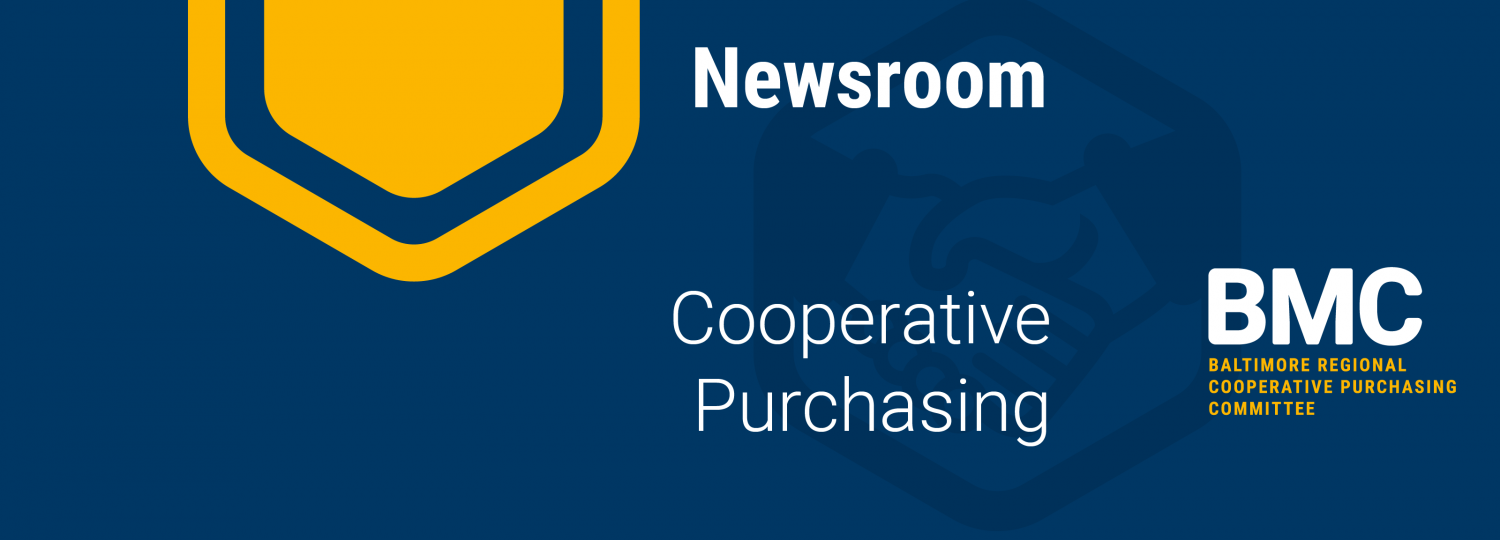
The Baltimore Regional Cooperative Purchasing Committee (BRCPC) coordinated with the Metropolitan Washington Council of Governments (MWCOG) to participate in the largest cooperative purchase of N95 masks in the Mid-Atlantic region. N95 masks are those recommended for use by medical and emergency professionals to prevent the transmission of infectious disease. These masks have come into increasingly high demand during the current COVID-19 pandemic. Led by MWCOG, this bulk purchase of 7.1 million masks covers the requirements for 30 governmental entities across Maryland, Virginia and the District of Columbia.
During a time when so much of the world is facing COVID-19 and the increasing measures to protect themselves, demand for personal protection equipment (PPE) has risen well above available supply. The aggregate volume of this order helped MWCOG and BRCPC to secure these essential resources despite competition from across the country and the globe.
In addition to this important effort, purchasers, governments, private industry and individuals have taken novel approaches to secure the resources our region needs. Here are a few clever and inventive local examples:
- Distilleries have converted their operations to make hand sanitizer until the normal manufacturers of hand sanitizer could catch up with demand
- Textile companies have made gowns and masks for medical personnel at the request of local leaders
- Supplies of gowns and masks were found through coordination with promotional supply companies
- Local EMS providers have spared gloves, masks and wipes
- Local firms have donated materials, including gloves from tattoo shops and masks from gas equipment suppliers
- Local firms have donated warehousing to store bulk shipments of PPE supplies
- Purchasers have worked with promotional supply houses to vet foreign offers for N95 masks to ensure their legitimacy
- Cooperative purchasing is being used to aggregate the volume of orders to ensure we get the attention of manufacturers and competitive pricing
- Individuals are sewing masks at home to fill gaps for their communities
Regional procurement professionals and their partners in the manufacturing and supply sector have shined in this challenging time. We are proud to share that their cooperation is helping to save lives.

The COVID-19 pandemic has taken many by surprise as this unprecedented crisis disrupts schedules, processes, and economic activity.
Renters and the rental housing industry in the Baltimore region are no exception. While current and necessary adaptions continue such as social distancing, stay at home orders, and business and school closures, we must turn our eyes to recovery and the financial challenges that vulnerable people will face as a result of the layoffs that accompany these unprecedented public health measures.
To this end, the Baltimore Metropolitan Council’s Housing Committee – local governments, housing agencies, and other stakeholders – submitted a letter to the Maryland Department of Housing and Community Development (DHCD) on April 8 offering strong support for a robust statewide rental assistance response to the COVID-19 crisis.
The letter was signed by the Chair of the Housing Committee and of the Baltimore Regional Fair Housing Group, Erin Karpewicz from Anne Arundel County, and by the Chair of the Fair Housing Group's Public Housing Authorities (PHAs), Peter Engel from the Howard County Housing Commission.
The economic impact of COVID-19 threatens a cascade of housing-related economic hardships. Expiration of the current eviction moratorium could result in a surge of evictions even if workers return to work after a furlough but receive no back pay and therefore no ability to pay their back rent balances. Property owners missing substantial rental income risk defaulting on their loans and going out of business. Lenders left holding those bad mortgage loans and foreclosed properties could clamp down on credit, crippling the rental housing industry just as it is trying to recover from record tenant unemployment.
The submitted letter expresses strong support for a State rental assistance program to help renters, property owners, and financial institutions to bridge this public health and economic emergency. Such a program would preserve our rental housing system, helping to smooth our economic recovery from our current dramatic public health measures.
BMC looks forward to continued work with local and State housing agencies and other stakeholders in supporting solutions for the Baltimore region in response to the current crisis.

As COVID-19 causes our workforce climate to shift from traditional brick and mortar offices and daily commutes, to virtual and telework options, working from home has quickly become the new standard.
Many organizations and professionals find the transition to this new norm challenging, primarily because of how quickly these shifts became necessary in response to the current health crisis.
BMC has gathered resources designed to help offices quickly develop and implement an effective telework program. These tools are available immediately for usage related to the current pandemic. They may also aid businesses in taking advantage of the long-term benefits associated with offering more permanent telework options.
Considering ongoing teleworking options beyond the pandemic offers benefits to both employers and employees. After implementing a telework program, organizations often report improved employee retention, reduced recruiting and training costs, improved productivity, reduced need for office space and reduced overhead as results. In addition, the reduction of cars on the road due to a decrease in daily commutes improves air quality for our region and beyond. There is value in considering long-term telework program offerings as temporary emergency options are established.
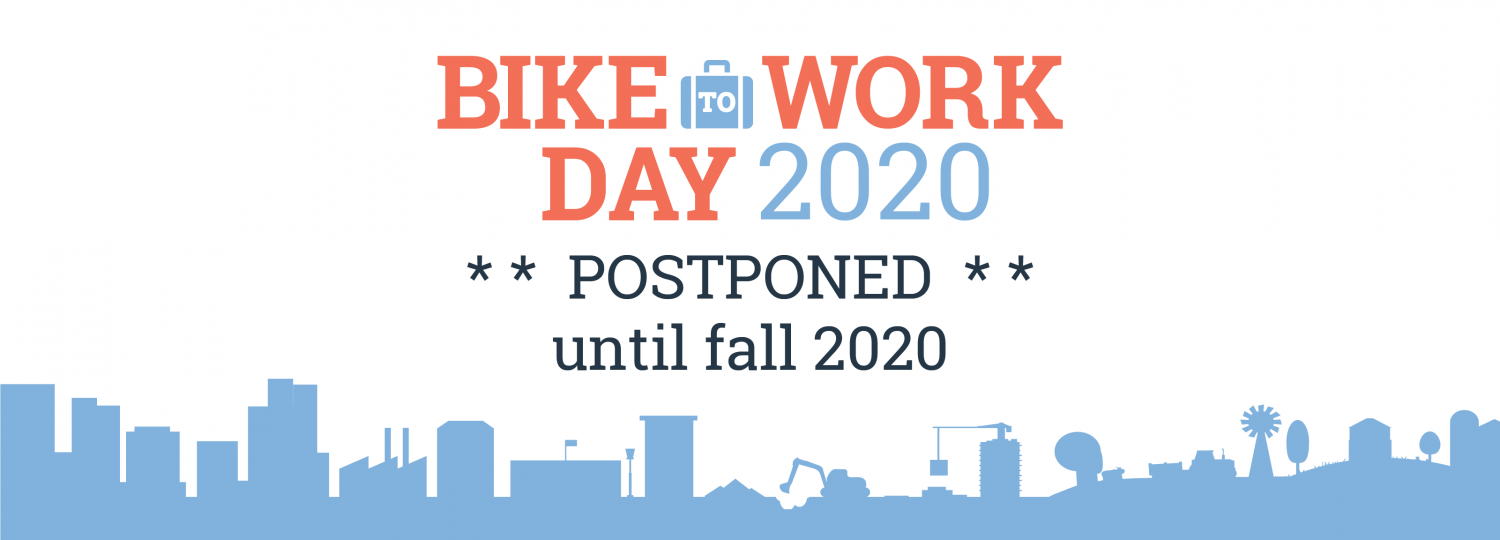
In light of the ongoing COVID-19 public health emergency, the Baltimore Metropolitan Council and its partners have decided to postpone Bike to Work Day 2020 (originally scheduled for May 15th) until this coming fall.
The health and safety of our participants and the community at large is our number one priority. While disappointing, this decision was necessary given the severity of this pandemic. The organizers will work to ensure that the rescheduled event is as fun, engaging and impactful as in years prior.
A reschedule date and registration procedures will be announced in the coming weeks. Please refer to biketoworkmd.com for updates.
Until that time, please follow the guidance of public health officials and stay safe.

Comments Welcome on the 2020 Federal Certification of the BRTB
The Federal Highway Administration (FHWA) and the Federal Transit Administration (FTA) invite you to join them on Wednesday, April 22 to share your thoughts about the regional transportation planning process conducted by the Baltimore Regional Transportation Board (BRTB).
The public meeting is part of a 30-day comment period related to a review by FHWA and FTA to certify that the transportation planning process carried out by the BRTB meets federal requirements for Metropolitan Planning Organizations (MPO). The BRTB is the MPO for the Baltimore region.
Comments are welcome on the 2020 Certification of the BRTB through Friday, May 1, 2020.
About the Federal Certification
Every four years, the U.S. Department of Transportation requires FHWA and FTA conduct an on-site review of the BRTB. The purpose of the certification review is to:
- provide an objective evaluation of the regional transportation planning process;
- ensure that federal planning requirements are being satisfactorily implemented by the BRTB;
- provide advice and guidance to the BRTB for ways it can further enhance the effectiveness and efficiency of the planning process and improve the quality of transportation investment decisions; and
- help ensure that the major transportation planning issues facing a metropolitan area are being addressed.
- the public may also provide feedback during the Public Comment Opportunity at the BRTB monthly meeting with elected officials at 9 a.m. on Friday, May 1.
FHWA and FTA also verify that the BRTB are implementing previous recommendations for improvement.
View the Federal Team Presentation |
View the Public Comments and Survey Responses |
Share Your Thoughts
The public review period runs from March 31 through May 1, 2020. There are three ways you can share your thoughts:
TAKE OUR SURVEY |
JOIN US AT A PUBLIC MEETING |
SEND YOUR THOUGHTS IN WRITING |
|---|---|---|
|
Your evaluation of the BRTB can be shared with FHWA/FTA via survey. |
This is an excellent opportunity to directly express your opinion to FHWA and FTA about the work of the BRTB and its efforts to address major transportation issues facing the region. Staff from FHWA and FTA will host an online public meeting to listen to public comments on Wednesday, April 22 from 6 to 7 p.m. Join by: Computer, Tablet or Smartphone Phone: dial United States (Toll Free): 1 877 309 2073 or +1 (571) 317-3129 and enter Access Code: 563-035-189 The public may also provide feedback during the Public Comment Opportunity at the BRTB monthly meeting at 9:45 a.m. on Friday, May 1. Join by: Computer, Tablet or Smartphone Phone: dial United States (Toll Free): 1 877 568 4106 or +1 (312) 757-3129 and enter Access Code: 270-227-325 For any member of the public who wishes to address the BRTB on the day of the meeting, they may do so by emailing a short statement (no more than 375 words) to tlang@baltometro.org. These statements must be received no later than 9 A.M. on May 1, 2020 to be relayed to the board at the meeting. |
Please send all comments in writing to: ONLINE: BRTB Comment Form EMAIL: comments@baltometro.org TWITTER: @BaltoMetroCo | @BmoreInvolved | #BRTBlistens MAIL: The Baltimore Regional Transportation Board | 1500 Whetstone Way, Suite 300 | Baltimore, MD 21230 FAX: 410-732-8248 |
BMC is accessible by the MDOT MTA 94 and 71 bus lines, as well as the Charm City Circulator's Banner Route. There is also vehicle and bicycle parking on-site. Directions to BMC
The BRTB is the federally recognized metropolitan planning organization (MPO) for transportation in the region. BMC provides the BRTB with staff support.
The BRTB operates its programs and services without regard to race, color, or national origin in accordance with Title VI of the Civil Rights Act of 1964, and other applicable laws. Appropriate services can be provided to qualified individuals with disabilities or those in need of language assistance who submit a request at least seven days prior to a meeting. Call 410-732-0500.

By now, every household in the U.S. should have received an invitation to reply to the 2020 Census online, by phone or by mail.
Federal, state and local governments are encouraging responses from everyone in the U.S., including those deemed hard to count.
BMC’s GIS team developed an app that tracks 2020 Census self-response rates, based on Census Bureau data.
This app allows quick access to response rates by county and Census tract. It also allows users to click on layers, adjust transparency, search by address, view data tables, and create maps to print.
This app, best suited as a tool for government agencies, planners, and community activists, can assist in tracking Census participation by neighborhood. It allows users to identify low response rates as they develop, so community leaders can take early action to further encourage Census participation.
Updates to data for the app occur automatically each day to keep it current and will continue in this vein through Summer 2020, as the Census deadline approaches. After which, the app will stay in place to serve as a resource and reference point to review data and results. This may be useful in evaluating outreach strategies and results by neighborhood.
The app can be found here: https://arcg.is/1buC1f
For more information on the 2020 Census, please visit Census.Maryland.gov or 2020Census.gov.
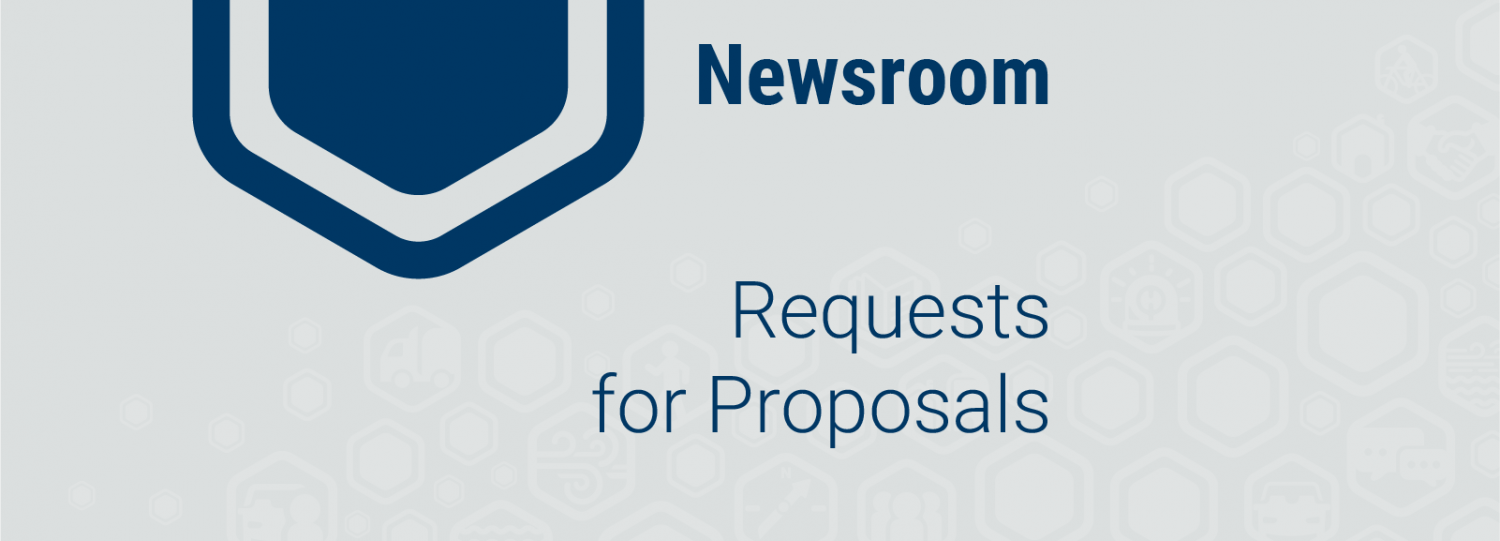
Because of the delay in the timeline for the upcoming 2020 competitive round of Low Income Housing Tax Credit (LIHTC) awards conducted by the Maryland Department of Housing and Community Development (DHCD), the Baltimore Metropolitan Council (BMC) is replacing its February 4 request for proposals for the Baltimore Regional Project-Based Voucher (PBV) Program with a new RFP (#20V07) with a revised timeline:
- Our Pre-Proposal Conference is now Thursday, March 19, 2020, 9:30 a.m. at BMC. (Rescheduled from this Thursday, February 27)
- Written questions should be sent to Dan Pontious at dpontious@baltometro.org by no later than Wednesday, April 1.
- Answers to questions will be posted on the BMC website no later than Tuesday, April 7. BMC may post answers at additional times, as well.
- The deadline for proposals is now Wednesday, April 22 by 4:00 p.m.
- We anticipate decisions by Tuesday, May 12.
The new RFP also has updated voucher payment standards for some Baltimore County census tracts. The remainder of the new RFP is identical to the February 4 RFP.
Successful applicants to this Baltimore Regional PBV Program may be eligible for scoring incentives in the upcoming competitive LIHTC round.

The Baltimore Metropolitan Council (BMC) convened the Bicycle and Pedestrian Advisory Group (BPAG) on Wednesday, January 15th. The purpose of the meeting was to hold elections for the advisory group chair and vice chair positions and to discuss the BPAG’s 2020 goals for the Baltimore Region and upcoming tasks and studies to be included in the FY 2021 update of the Unified Planning Work Program (UPWP). BPAG members also heard presentations from representatives of the Maryland Department of Transportation.
A state level overview of the Complete Streets program helped kick-off BPAG’s work program for 2020. Complete Streets are designed and operated to enable safe use and to support mobility for all users: people of all ages, abilities and modes whether traveling as pedestrians, bicyclists, micro mobility users, public transportation riders or drivers. MDOT is currently working on a state level to develop a Complete Streets policy that will define the approach for effective implementation of enhanced network connectivity, safety and access.
Details from MDOT’s new guide, Context Driven: Access & Mobility for All Users was also shared during the meeting. This Guide is a planning and design resource that offers practitioners new techniques and solutions to achieve safety, accessibility, and mobility goals framed by the surrounding land-use. This new approach accounts for the unique characteristics of different areas in Maryland that ultimately affect roadway design and resulting safety. The guide is not prescriptive, however it encourages up-to-date tools based on current community feedback, proven solutions rooted in the surrounding context, and flexibility to encourage innovation and community-specific solutions.
Following the presentations, the BPAG members discussed exciting bicycle and pedestrian activities happening in their jurisdictions including: bicycle and pedestrian master plan updates in Anne Arundel and Harford Counties; construction of new segments of the Broadneck Peninsula Trail in Anne Arundel County; funding for design of two segments of the 35-mile loop trail in Baltimore City; development of new trail mapping in Carroll County; a new website developed by Maryland Department of Planning and MDOT where users can gather data on Transit Oriented Development; and new bicycle and pedestrian grant application cycles through several MDOT initiatives.
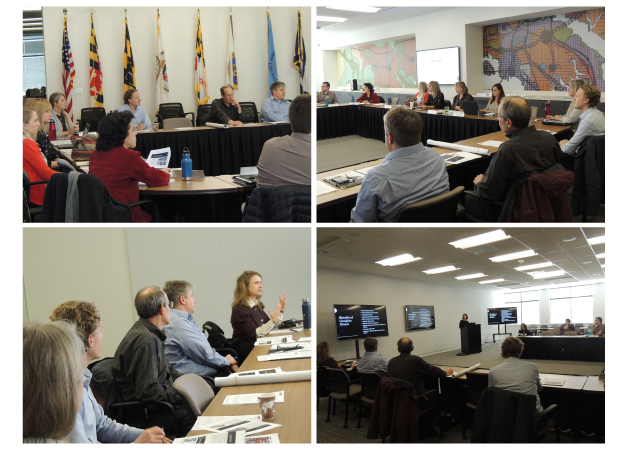 |
